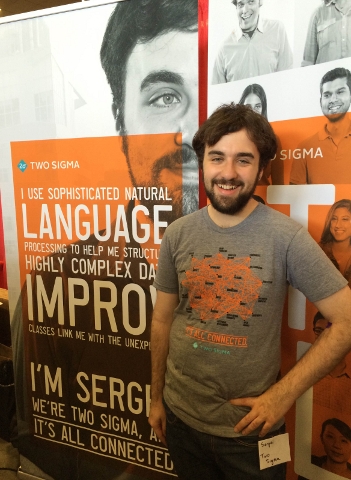I promised to explain my job situation to my readers. I currently have six part-time jobs, which I describe below in the order that I started them.
The job I have had the longest is coaching math for competitions at AMSA Charter School. I started there in the spring of 2008 and I am still teaching there every week. I post my homework assignments on my webpage for other teachers and students to use.
The next longest has been as the Head Mentor at RSI, which I started in the summer of 2009. RSI is a great program where high school students from all over the world come to MIT to do research during summer vacations. It is amazing how much an ambitious student can do during a short five-week period. My first year I saw some great research done, but I was surprised that RSI papers were generally not available online. Beginning in 2012, at my recommendation, our Director Slava Gerovitch now posts the RSI papers at the math department RSI webpage.
As good a program as it is, RSI is too short for a research project. So we decided to develop our own program called PRIMES (Program for Research in Mathematics, Engineering, and Science for High School Students). I am also the Head Mentor in this program. I provide general supervision of all the projects and review conference slides and final papers. In addition to being the Head Mentor, I mentor my own students, which is great fun. I usually have three projects, but if something happens to a project or a mentor, I take it over.
Together with Pavel Etingof, PRIMES Chief Research Advisor, and Slava Gerovitch, PRIMES Director, I wrote an article Mathematical Research in High School: The PRIMES Experience that appeared in Notices.
My job #4, since the fall of 2013, is as a Teaching Assistant for the MIT linear algebra course.
This year I took on two more jobs at MIT. I am the Head Mentor at Mathroots, a summer program for high school students from underrepresented backgrounds. I am also teaching at PRIMES STEP, the program for gifted middle-school students in the Boston area. The goal of the program is to teach students mathematical thinking, have fun, and prepare them for PRIMES.
Overall, I have reached the stage in my career when I do not have time to breath and I still do not make enough money to pay my bills. The good news: my jobs bring me satisfaction. I just hope that I will not be too tired to notice that I am satisfied.
Share:





 After graduating from MIT, my son Sergei joined
After graduating from MIT, my son Sergei joined